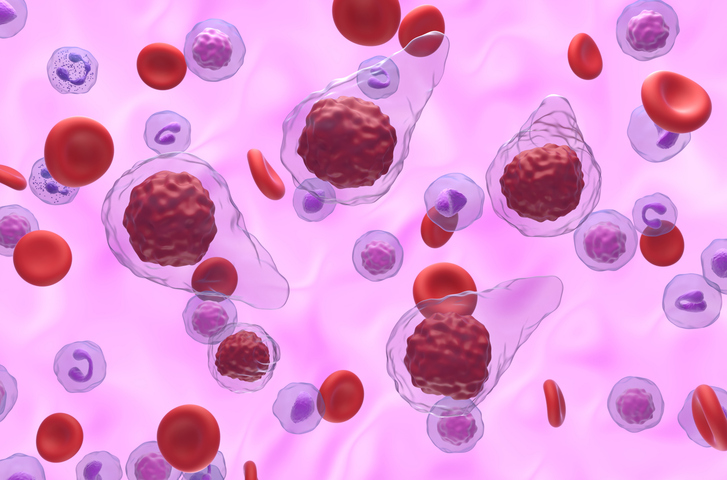Dr. Bose on JAK Inhibitor Optimization, Trial Updates in Myelofibrosis
By Prithviraj Bose, MD, Cecilia Brown, Andrew Moreno - Last Updated: September 25, 2024Speaking with Blood Cancers Today, Prithviraj Bose, MD, of the University of Texas MD Anderson Cancer Center, provided a recap of a presentation he gave on myelofibrosis management at the Society of Hematologic Oncology (SOHO) 2024 Annual Meeting in Houston, Texas. His presentation covered how to select and best use the four Janus kinase (JAK) inhibitors approved for myelofibrosis by the US Food and Drug Administration.
The selection and sequencing of JAK inhibitor agents in myelofibrosis is complex because each option in the JAK inhibitor inventory has strengths in different clinical situations. Dr. Bose described momelotinib as the best choice to improve anemia; pacritinib the safest for patients with platelet counts of less than 50 x 109/L; and ruxolitinib as showing the best survival outcomes, except for in second-line therapy, where fedratinib is superior.
Next, Dr. Bose delved into the efficacy and tolerability results of the phase III MANIFEST-2 trial of ruxolitinib plus pelabresib for myelofibrosis. These results were varied and nuanced, and the combination’s regulatory approval is uncertain as it did not meet the symptom endpoint.
However, Dr. Bose noted, “combinations are a big thing in the field. Very much where the field is going. Most of the combinations, as in MANIFEST-2, have involved ruxolitinib.” He also mentioned that momelotinib-based regimens have very recently entered clinical use.
MANIFEST-2 was among several presentations in myeloproliferative neoplasm management at the SOHO 2024 Annual Meeting that Dr. Bose found exciting. Others were separate trial updates given on avapritinib and bezuclastinib for systemic mastocytosis and early findings on the drug DISC-0974 for treating anemia in myelofibrosis.
To conclude, Dr. Bose commented about outcomes evaluation in myelofibrosis that it is a clinical area in need of improvement. Specifically, “we don’t have good biomarkers, at all, in myelofibrosis. We are really still going with things we know correlate with survival.” Dr. Bose added that there is currently a lack of such correlates, and it is difficult to translate findings from clinical trials into survival outcomes.






 © 2025 Mashup Media, LLC, a Formedics Property. All Rights Reserved.
© 2025 Mashup Media, LLC, a Formedics Property. All Rights Reserved.